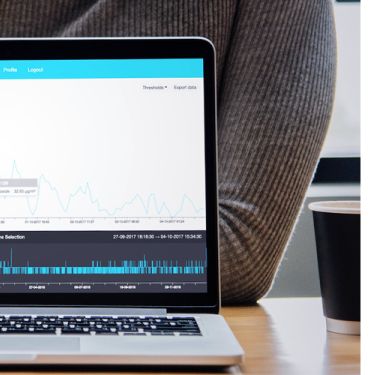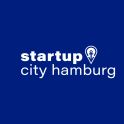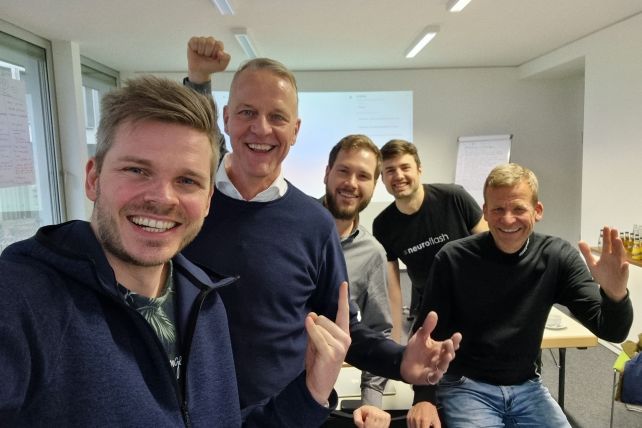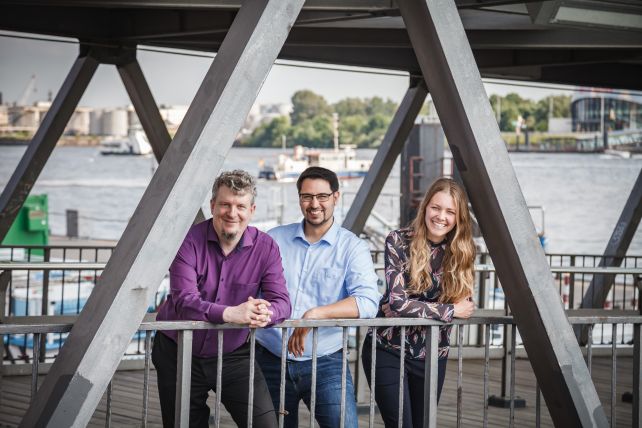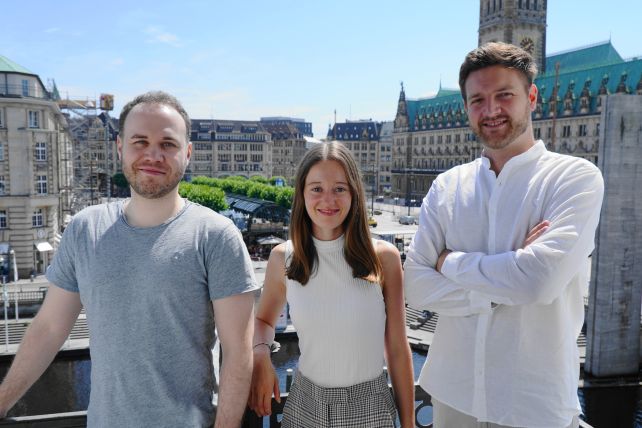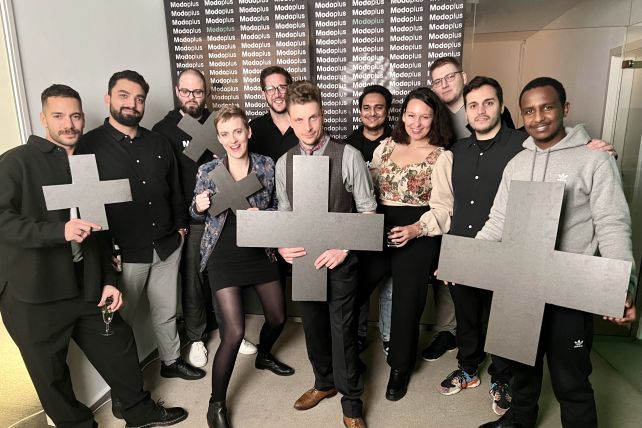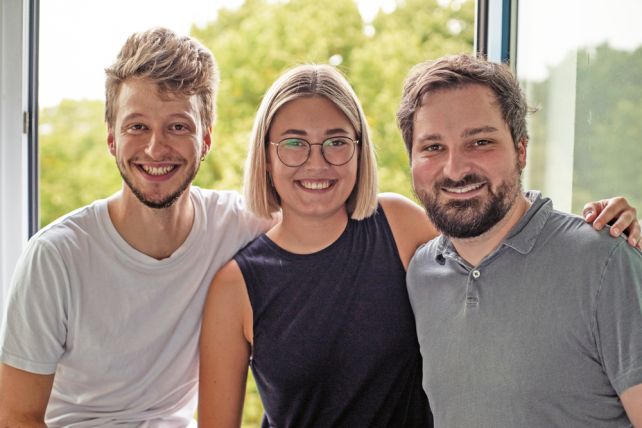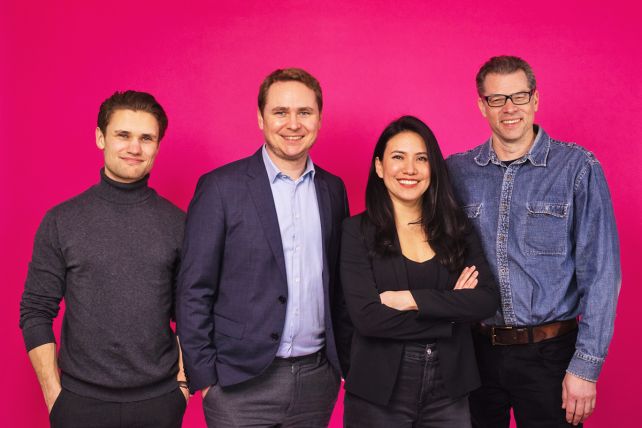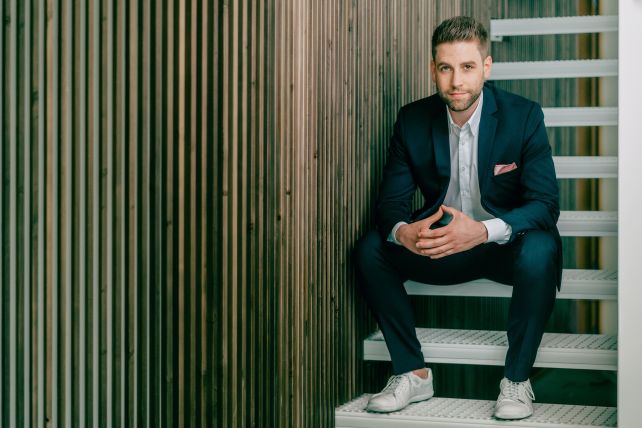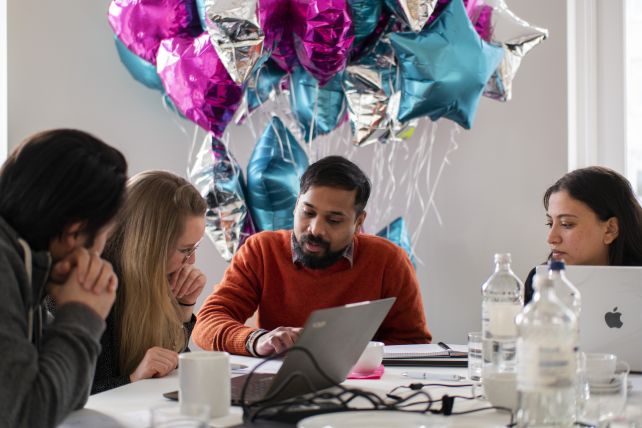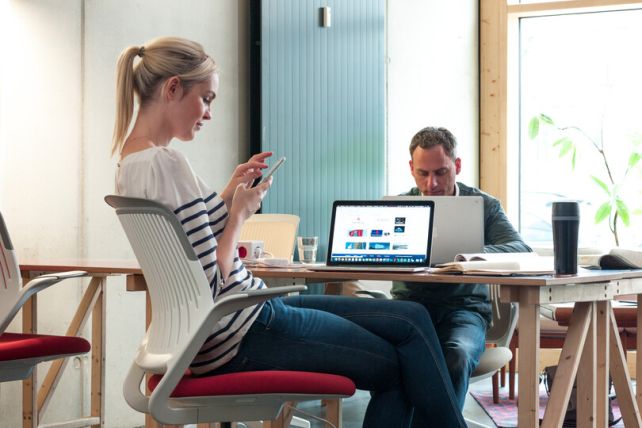Breeze Technologies: Artificial Intelligence for cleaner air in the city

In 2014, Robert Heinecke spent some time in Istanbul. There, the smog was so heavy that you could barely see the other side of the street. The images stayed with Robert. He wanted to know more about what cities like Istanbul were doing to improve air quality.
His research was rather frustrating, however, because the data was sparse and the air pollution control measures rather haphazard. Most of the measurement technology was stuck in the 1970s and cities had to invest hundreds of thousands of euros for a single measurement station. Given his background in computer science, he thought it had to be better than that. This idea led him in 2015 to found his startup, Breeze Technologies, which is now more of a scale-up.
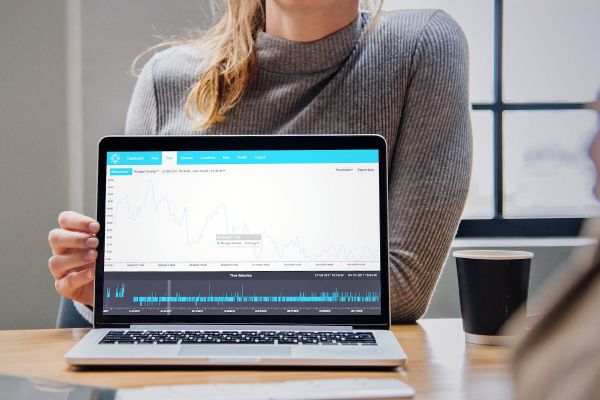
The Breeze system – up to 50,000 times smaller and 1,000 times cheaper than existing solutions.
With 17 employees and offices in Hamburg, Berlin and Copenhagen, Breeze Technologies helps companies, cities and other organisations worldwide to measure and improve air quality. To do this, the company relies on the Internet of Things and artificial intelligence. In concrete terms, this means that Breeze develops and produces its own small and cost-effective air quality sensors.
What is special about Breeze’s solution is that, in contrast to previous products, Breeze shifts as much complexity as possible to the cloud. In this way, the Breeze team has managed to offer sensors that are up to 50,000 times smaller and 1,000 times cheaper than classic air measurement stations. The data flows in real time into a central platform where it is calibrated, visualised and analysed for customers and partners. Thanks to the self-learning system, the recommendations become better and better with each project.
We met Robert Heinecke, founder and CEO of Breeze, smart city expert and multiple award-winning entrepreneur (including Forbes “30 Under 30” and “Young Green Tech Entrepreneur of the Year 2019”), for an interview and asked him what tips he has for founders. He also reveals why he prefers zebras to unicorns and why he has relied on bootstrapping since the beginning.
Robert, thank you for taking the time to talk to us. Can you tell us something about the vision of Breeze Technologies?
Robert: Sure, with pleasure. Breeze’s big goal is clean air worldwide, no matter where you are. Part of our mission is to first create transparency about the status quo – because 99% of cities don’t yet even have data about their air quality. Only when we have this can we really address today’s problems in a targeted and effective way. The old adage applies: You cannot manage what you cannot measure. Furthermore, we believe that we can create great social value with the data we collect. As a social impact startup, this is very important to us.

You have already won more than 35 startup awards, including the Hamburg Founders’ Prize. What has been your biggest success so far?
Robert: We are currently swimming on a wave of success: together with the US Department of Homeland Security, we were not only able to prove the functionality of our air quality sensors, but also show that we are quickly able to detect forest fires with the help of the collected data. The system is now being rolled out in California in a larger project.
At the beginning of the year, Vilnius became the first European capital to join our clientele. And the German Federal Ministry of Education and Research (BMBF) is currently supporting us in creating a German-European exchange platform for air quality data, which will serve as a central data hub in the future and greatly improve the accessibility of air data.

Financing their own business idea is super important for many founders. How did you get started in this area?
Robert: We are still “bootstrapped”, i.e. without external venture capital. We have found that our social impact model is not really compatible with the classic venture capitalists and the business model of exiting after 5-10 years. We therefore finance ourselves from our sales – this also puts our business model on a solid and sustainable foundation.
How would you describe the team behind Breeze Technologies? What makes you stand out?
Robert: Social impact is extremely important to us. Even in the selection interviews, we talk to the candidates about how they live the topic of sustainability. In team workshops we have defined six core values for our cooperation: Reliability, Respect, Shared Support, Enthusiasm, Empathy and Teamwork. This is particularly important because we are very diverse: With 18 team members, we have 7 nationalities represented; our team language is English. From environmental scientists to hardware and software experts to our business team, we all pull together.

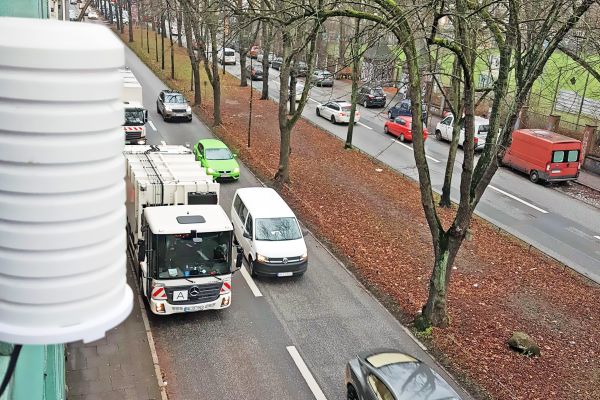
What advice do you have for startup founders in Hamburg?
Robert: No matter what the business model looks like, it definitely makes sense to have a person in charge of business development right from the start – even before the product is actually ready. Many founders make the mistake of telling as few people as possible about their idea “so that no one steals it”. In my eyes, that makes absolutely no sense. In the worst case, you get valuable feedback from potential customers for your own product development; in the best case, you already find the first pilot customers or partners who want to support you in the development.
What are your future plans for Breeze Technologies?
We are currently in the process of expanding nationally and internationally and are looking for various new team members, for example in the areas of marketing, sales and software development. With the air measurement data we have already collected, we are now in a position to realise more and more additional use scenarios: for example, automatic forest fire detection in the USA, or routing through the streets with the best air quality for asthmatics. We will continue to expand such use cases in the future and are also looking for additional partners who are interested in the corresponding air quality data for their own applications. I don’t think we can even imagine today what will be possible with this data in the future. In any case, it remains exciting!
Thank you, Robert, for the interview and the interesting insights into Breeze Technologies.
